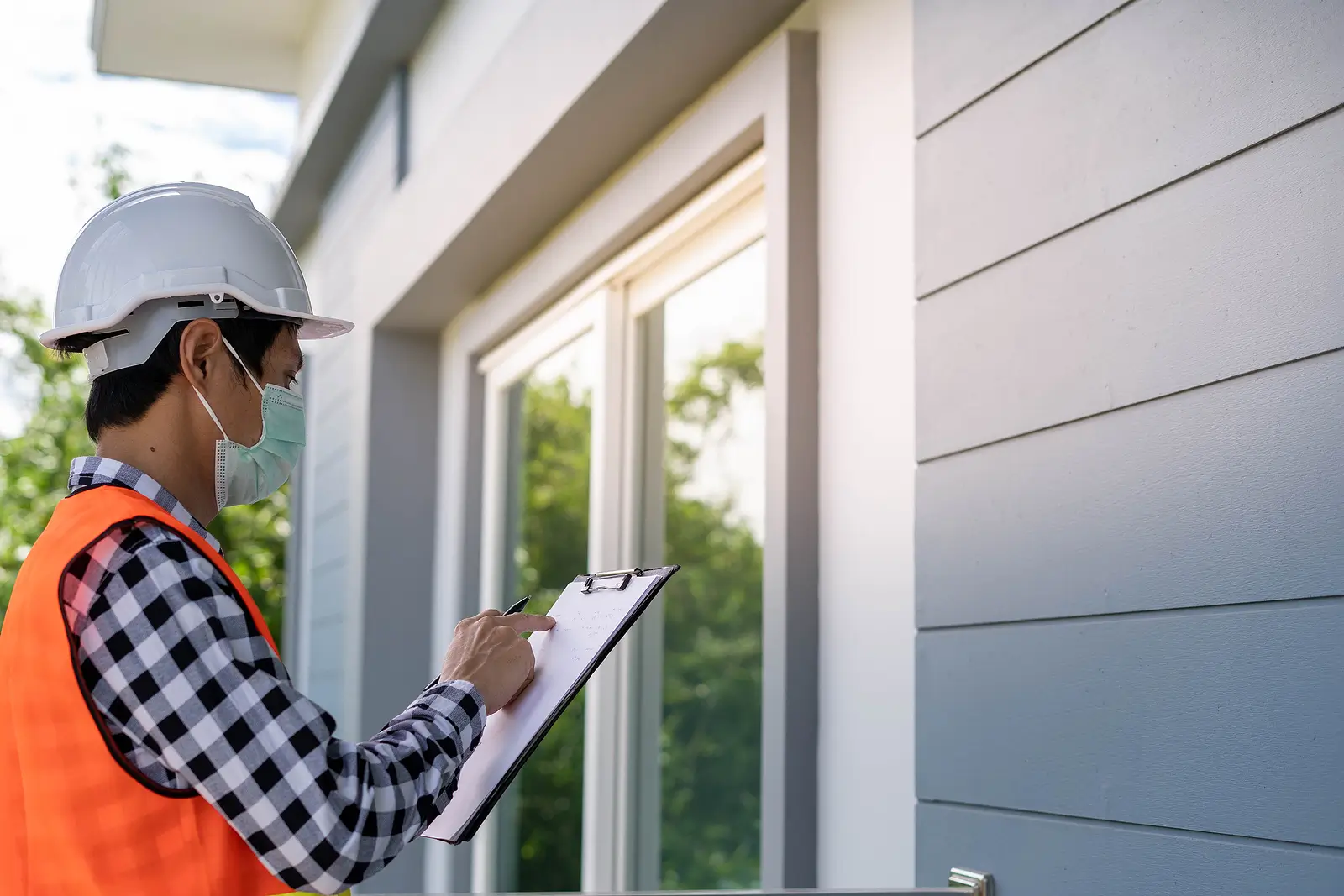Rental property maintenance is essential for protecting investments, as well-maintained properties attract tenants, reduce vacancies, and enhance portfolio value. Landlords can perform these tasks themselves or hire a professional property management company for specialized services such as HVAC maintenance, plumbing, and electrical work.
At RTP Properties NC Inc., our seasoned property managers bring deep expertise and a commitment to staying ahead of industry trends. This ensures your rental property in Raleigh, NC, is maintained to the highest standards and in full compliance with current best practices.
Read on to explore our essential rental property maintenance checklist every landlord should follow.
Key Takeaways
- Combine preventive maintenance, routine, emergency, and seasonal tasks to keep rental properties in top condition throughout the year.
- Annual HVAC servicing, pest control, and safety inspections prevent costly repairs and ensure tenant comfort.
- Promptly addressing urgent issues like heating loss or roof leaks protects both tenants and property value.
- Clear communication with tenants builds trust and encourages quick reporting of maintenance concerns.
Types of Maintenance
Effective property management relies on a balanced approach to different types of maintenance. By combining preventive maintenance, routine, emergency, and seasonal tasks, property managers can keep buildings safe, functional, and appealing while avoiding costly repairs.
1. Preventative Maintenance
Preventative maintenance addresses potential issues before they become costly repairs. This approach keeps properties safe, efficient, and attractive.
The key areas to focus on include the following:
- HVAC System: Annual inspections, air filter replacements, and system cleaning to maintain peak efficiency.
- Pest Control: Ongoing contracts to prevent infestations and protect tenant health.
- Fire Suppression Systems: Test smoke and carbon monoxide detectors, verify sprinkler pressure, check fire extinguisher expiry dates, ensure that emergency lighting meets code, and clean chimneys.
- Electrical Systems: Inspect for hazards, outdated wiring, and compliance with safety regulations.
- Windows and Doors: Test operation, check sealing, and confirm security features to improve energy efficiency.
- Flooring and Carpets: Inspect for wear, repair damage, and deep clean to extend lifespan and reduce replacement costs.
- Outdoor Equipment & Landscaping: Maintain lawns, storage areas, and shared amenities to enhance curb appeal and tenant satisfaction.
- Security Enhancements: Install smart locks, home security systems, and cameras for improved monitoring and controlled access.
2. Routine Maintenance
Routine maintenance involves recurring tasks that keep the property functional, safe, and visually appealing. Every week, this includes removing trash and debris from common areas. Clean entryways, stairwells, and laundry spaces. Perform lawn maintenance such as raking leaves, shoveling snow, and watering plants.
Monthly tasks include inspecting and replacing common area lighting, checking basements and attics for proper ventilation and sump pump function, and ensuring entrances remain free of obstructions.
For outdoor safety, it’s important to ensure snow removal, repair loose steps or railings, address tripping hazards, clear yard waste, prevent standing water, and manage trash overflow.
3. Emergency Repairs
These repairs are urgent maintenance issues that require immediate attention to ensure safety and prevent further damage.
These include situations such as the following:
- No hot water: Repair within 24 hours
- No heating in cold weather: Address within 3–7 days, depending on severity
- Lack of drinkable water: Resolve within 2 days
Other critical concerns include bathroom plumbing, a leaking roof (repaired within 30 days or sooner if it poses a safety risk), sewage backups (addressed within 30 days), and refrigerator failure, which should be fixed within 14–30 days to avoid food spoilage and tenant complaints.
4. Seasonal Maintenance
Raleigh’s humid subtropical climate means properties need regular maintenance tailored for mild winters, hot summers, and occasional severe weather. Year-round care ensures safety and efficiency, while seasonal responsibilities help avoid major repairs and keep tenants comfortable.
Necessary Year-Round Maintenance Tasks
These ongoing tasks protect the property and prepare it for seasonal changes:
- Swap storm windows/doors and screens for energy efficiency and ventilation.
- Check exterior faucets and irrigation for leaks or freezing during cold snaps.
- Inspect roofs and gutters multiple times a year, especially after storms and in autumn (gutter cleaning is essential).
- Examine foundations for cracks, settling, or standing water after heavy rain or snowmelt.
Spring
Spring is the time to clear away winter damage and prepare for warmer, wetter weather:
- Clean gutters and downspouts.
- Repair roof, stucco, or brick damage.
- Prune trees/shrubs and plant seasonal flowers.
- Pressure wash exterior surfaces to remove mildew and pollen.
- Inspect and repair sprinkler/irrigation systems.
- Seal driveways and walkways to protect against heat and rain.
Summer
Hot, humid summers in Raleigh require extra attention to landscaping, amenities, and storm prep:
- Maintain landscaping to handle rapid growth.
- Clean and service pools or hot tubs.
- Touch up exterior paint and recaulk to prevent moisture damage.
- Service backup power systems.
- Prepare for hurricane season by securing furniture, removing debris, and trimming trees.
Fall
Fall is about preparing for occasional freezes and protecting the property through cooler months:
- Winterize plumbing.
- Update fire safety plans and educate tenants on seasonal hazards.
- Install heavy-duty entry mats.
- Swap screens for storm windows.
- Apply pest prevention measures.
Winter
Though generally mild, Raleigh winters still require steps to prevent weather-related damage:
- Service your boiler and heating system.
- Insulate exposed pipes and stock de-icing materials.
- Inspect masonry and exterior walls for freeze-thaw damage.
- Clean chimneys and flues professionally.
Property Maintenance Checklist
A comprehensive property maintenance checklist ensures both the interior and exterior of a property remain safe, functional, and appealing.
Annual Interior Tasks
Keep the inside of the property in top condition with yearly tasks such as the following:
- Cleaning carpets
- Repairing floors in common areas
- Cleaning dryer vents
- Draining water heater units
- Checking for mold
Annual Exterior Tasks
Preserve curb appeal and protect structural integrity by doing the following every year:
- Inspecting fire escapes
- Power washing or repainting siding
- Resealing parking areas
- Mulching or aerating lawns
Regular upkeep prevents unexpected repairs and enhances the property’s overall value.
Annual Professional Inspections
Schedule a yearly property inspection for plumbing, electrical systems, gas, and HVAC systems. These evaluations can detect and resolve potential issues early, ensuring all systems are functioning properly.
Safety Maintenance
Check exterior drainage, grills, and outdoor furniture, and inspect interior locks, peeling paint, furnaces, and carbon monoxide detectors. Addressing these concerns promptly safeguards residents and extends the lifespan of the property’s features.
Budgeting and Cost Estimation
Planning for repair costs helps prevent financial strain and ensures that necessary repairs are handled promptly.
Several common formulas can guide budgeting decisions, such as the following:
- 1 Percent Rule: Allocate 1 percent of the property’s value annually.
- 50 Percent Rule: Maintenance costs equal half of total operating expenses.
- 1.5x Rule: Budget 1.5 times the monthly rental income.
- Square Foot Formula: Allocate $1 per square foot per year.
- Income Percentage Approach: Set aside 5–10 percent of your income until actual cost trends are established.
A well-prepared budget for your maintenance checklist should account for routine, preventive maintenance, and emergency tasks, including HVAC servicing, air conditioning systems, outdoor lighting fixtures, and seasonal preparation.
Tenant Communication
Clear and timely communication with tenants fosters trust and encourages prompt reporting of maintenance requests. Always notify tenants in advance about upcoming property inspections, and make it easy for them to share any concerns. Quick responses not only protect a well-maintained rental property but also keep tenants happy.
You or your property manager must provide clear details about who will carry out the work and when it will take place, helping tenants feel informed and at ease throughout the process.
Important Reminder: All communications must comply with Fair Housing Act requirements, including giving proper notice and completing repairs within a reasonable timeframe.
Applying Essential Maintenance for Lasting Results
Consistent, well-planned maintenance not only safeguards asset value but also ensures tenant safety, reduces vacancies, and minimizes costly emergencies. By combining preventive maintenance, routine upkeep, seasonal prep, and clear communication, landlords can protect their investment.
At RTP Properties NC Inc., we’re dedicated to guiding property owners through every stage of property management, making the process smooth, efficient, and rewarding. Contact us today to get a free rental price analysis and discover how our local expertise can help you maximize your rental property’s success in Raleigh, NC!
FAQs
1. What are the main types of rental property maintenance?
The four key types are preventative, routine, emergency, and seasonal maintenance—each essential for keeping a property safe, functional, and appealing year-round.
2. How often should HVAC systems be serviced?
HVAC systems should be professionally inspected at least once a year, with filter replacements and system cleaning included.
3. What are examples of emergency repairs?
Common emergencies include loss of hot water, no heating in cold weather, lack of drinkable water, roof leaks, sewage backups, and refrigerator failures—all of which require prompt action to ensure safety and comfort.
4. How can landlords improve communication about maintenance?
Provide advance notice for inspections and repairs, respond quickly to maintenance requests, and clearly communicate who will perform the work and when it will take place.



